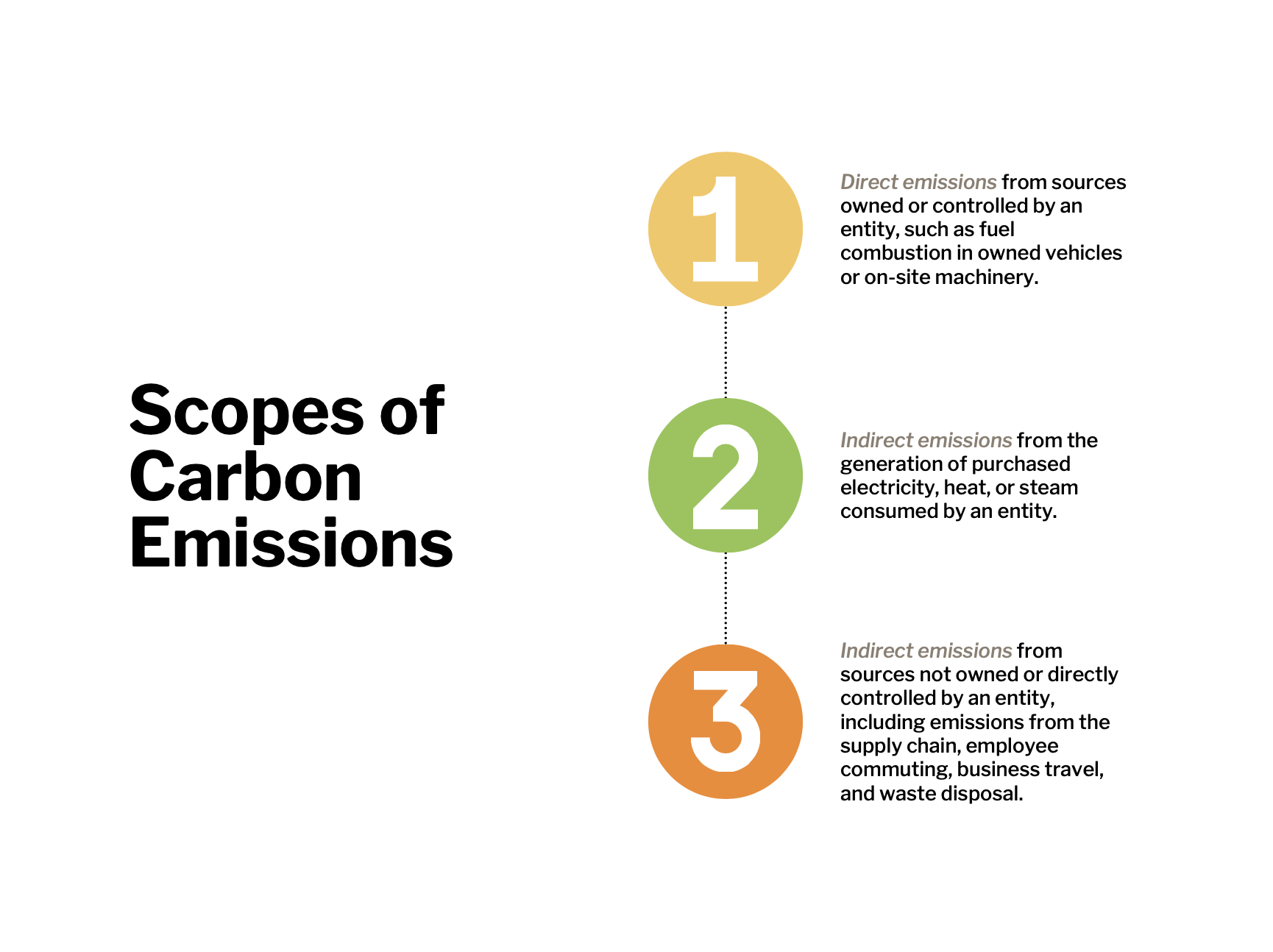With efforts to combat climate change and transition towards a more sustainable future, understanding and addressing carbon emissions is overriding. The concept of carbon emissions is often discussed within the framework of the three scopes, which provide a comprehensive view of emissions across various activities. This article guides you through the three scopes of carbon emissions and their significance in the context of sustainability initiatives, with a focus on the innovative contributions of NiQuan Energy.

The Three Scopes of Carbon Emissions
- Scope One: Direct Emissions
Scope 1 emissions encompass direct greenhouse gas emissions produced by owned or controlled sources. These sources typically include on-site fuel combustion, such as those from vehicles, machinery, and industrial processes. For energy-intensive industries like manufacturing and energy production, Scope 1 emissions are a significant concern.
- Scope Two: Indirect Emissions
Scope 2 emissions entail indirect greenhouse gas emissions associated with purchased electricity, heat, or steam consumed by an organization. While these emissions are not produced on-site, they result from the generation of energy off-site.
- Scope Three: Direct Emissions
Scope 3 emissions encompass all indirect greenhouse gas emissions occurring throughout an organization's value chain, including both upstream and downstream activities. This scope extends beyond the company's direct operations to include emissions from sources such as purchased goods and services, transportation, and employee commuting.
NiQuan’s approach to addressing the scopes of carbon emission involves several key strategies:
Scope One NiQuan addresses Scope 1 emissions through the adoption of cleaner technologies and implementation of efficient processes in its energy production facilities. This involves investing in advanced equipment and technologies that minimize emissions generated directly from operations. For example, NiQuan implements carbon capture and utilization (CCU) technologies to reduce the release of greenhouse gases during the production process.
Scope Two NiQuan Energy addresses Scope 2 emissions through a meticulous approach to its Gas-to-Liquids (GTL) process, designed to maximize energy recovery at every stage. Within this framework, heat energy is a primary focus, particularly derived from process reactions, with the highest heat energy generated in the Frontend and FT Reactors. To efficiently utilize this heat, NiQuan channels hot streams through exchangers to recover heat energy and reheat incoming streams, thus optimizing energy usage. Additionally, the company minimizes excess heat generated from electrical equipment through rigorous routine maintenance and the use of standby equipment (N+1 Status), ensuring continuous operations without disruption. Notably, large equipment is steam-driven rather than electric, reducing excess heat scenarios.
NiQuan also maximizes steam utilization by recovering low-pressure and temperature steam streams for reuse, minimizing waste. A zero-flare policy is implemented, returning excess gas or by-products to the process or using them as fuel. Carbon dioxide produced is stripped from process streams and returned, promoting production equilibrium without venting. By maximizing gas recovery and employing efficient heat exchange methods, NiQuan Energy reduces furnace output, mitigating flue gas emissions and demonstrating a commitment to sustainability.
Scope Three NiQuan takes a holistic approach to address Scope 3 emissions by collaborating with suppliers and stakeholders to optimize supply chain processes and promote sustainable practices. This could involve working closely with suppliers to reduce emissions associated with the production and transportation of raw materials and components used in NiQuan's operations. By integrating environmental considerations into its procurement and logistics strategies, NiQuan minimizes its overall carbon footprint across the value chain.
NiQuan’s proactive measures to address carbon emissions across its operations and value chain demonstrate its commitment to sustainability and environmental responsibility. By embracing cleaner technologies, promoting renewable energy adoption, and fostering collaboration throughout the supply chain, NiQuan sets new standards for carbon reduction in the energy industry. Understanding the importance of SCOPE-ing out carbon emissions is essential for organizations aiming to minimize their environmental impact, and NiQuan Energy serves as a practical example of effective carbon mitigation strategies in action.

